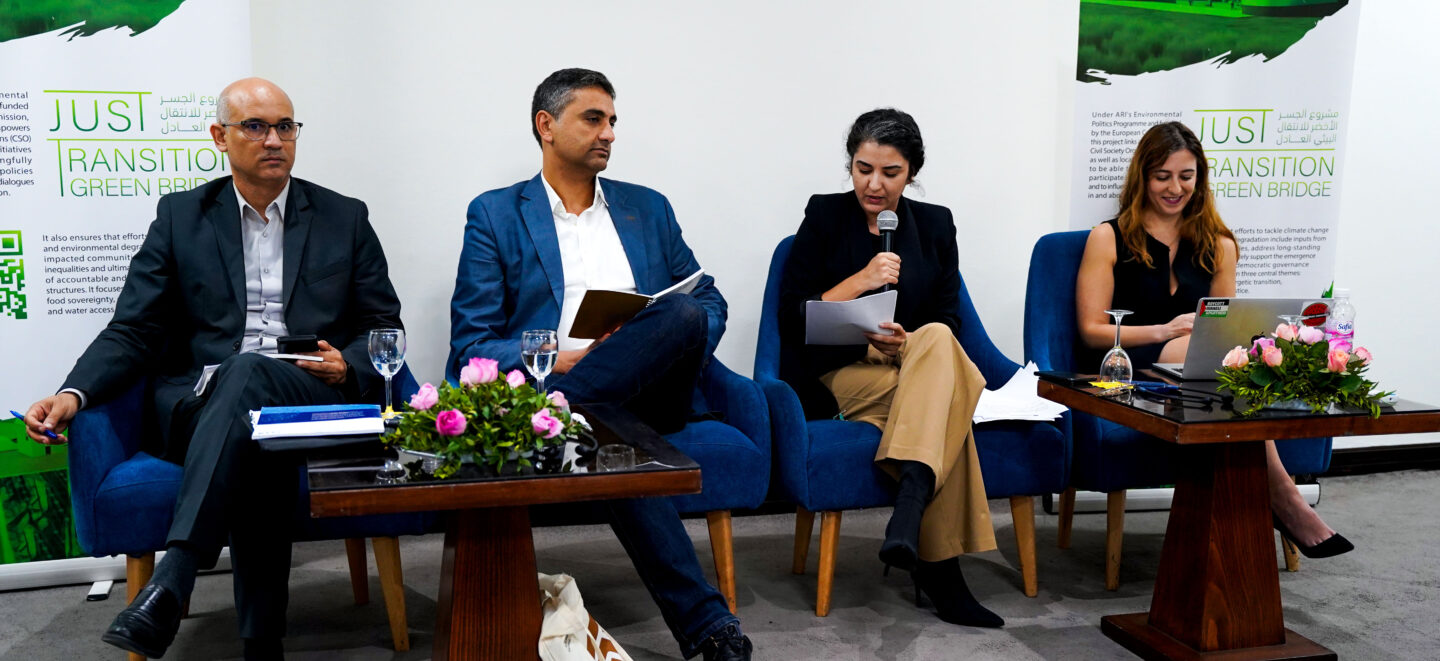Green Colonialism And Energy Transition: A Tunisian Perspective

Welcome to your ultimate source for breaking news, trending updates, and in-depth stories from around the world. Whether it's politics, technology, entertainment, sports, or lifestyle, we bring you real-time updates that keep you informed and ahead of the curve.
Our team works tirelessly to ensure you never miss a moment. From the latest developments in global events to the most talked-about topics on social media, our news platform is designed to deliver accurate and timely information, all in one place.
Stay in the know and join thousands of readers who trust us for reliable, up-to-date content. Explore our expertly curated articles and dive deeper into the stories that matter to you. Visit Best Website now and be part of the conversation. Don't miss out on the headlines that shape our world!
Table of Contents
Green Colonialism and Energy Transition: A Tunisian Perspective
Introduction: Tunisia, a North African nation striving for economic development and energy independence, finds itself at a critical juncture. Its ambitious energy transition plans, aimed at diversifying away from fossil fuels and embracing renewables, are increasingly intertwined with complex global dynamics. This article explores the concerns surrounding "green colonialism" – the potential for environmentally conscious initiatives to perpetuate existing power imbalances – and analyzes its implications for Tunisia's energy future. The narrative examines the challenges and opportunities facing the nation as it navigates this crucial period.
The Allure of Renewable Energy and the Shadow of Neo-colonialism:
Tunisia's commitment to renewable energy is commendable. The country boasts significant solar and wind potential, offering a pathway to reduce reliance on imported fossil fuels and enhance energy security. However, the influx of foreign investment in renewable energy projects raises crucial questions. Many fear that these projects, while ostensibly beneficial, might replicate historical patterns of neo-colonial exploitation, where profits flow primarily to foreign entities while local communities receive limited benefits. This concern is amplified by the potential for land grabs, displacement of local populations, and a lack of meaningful participation in decision-making processes.
Challenges Facing Tunisia's Energy Transition:
-
Foreign Investment and Control: A significant portion of renewable energy projects in Tunisia are financed and managed by international corporations. This raises concerns about profit repatriation and the lack of technological transfer and capacity building for local communities.
-
Debt and Dependency: Attracting foreign investment often involves securing loans and financing, potentially leading to further economic dependency on international institutions and potentially compromising national sovereignty in energy policy.
-
Environmental and Social Impacts: Large-scale renewable energy projects can have significant environmental impacts, such as habitat destruction and water resource depletion. Furthermore, inadequate consultation with local communities can lead to social unrest and conflict.
-
Lack of Local Expertise: The transition requires a skilled workforce. Tunisia needs substantial investment in education and training programs to ensure that its citizens can participate fully in the renewable energy sector.
H2: A Path Towards Equitable Energy Transition:
To mitigate the risks of green colonialism, Tunisia needs a strategic approach that prioritizes:
-
Strengthening Regulatory Frameworks: Robust regulations are needed to ensure fair compensation for land use, environmental protection, and local community participation in project development.
-
Promoting Local Ownership: Prioritizing investments that foster local ownership and control of renewable energy projects is crucial for maximizing economic and social benefits. This could involve supporting cooperatives and community-based energy initiatives.
-
Capacity Building and Technology Transfer: Investing heavily in education and training will equip Tunisian citizens with the skills needed to participate meaningfully in the renewable energy sector. Furthermore, encouraging technology transfer from foreign partners is essential.
-
Transparency and Accountability: Ensuring transparency in project financing, environmental impact assessments, and community engagement is crucial to building trust and fostering sustainable development.
Conclusion:
Tunisia's energy transition presents a unique opportunity to achieve sustainable development and energy security. However, it's critical to address the concerns surrounding green colonialism to ensure that this transition benefits the Tunisian people equitably. By prioritizing local ownership, capacity building, and robust regulatory frameworks, Tunisia can harness the potential of renewable energy while avoiding the pitfalls of historical exploitation. The success of Tunisia's energy transition will serve as a valuable case study for other developing nations navigating similar challenges in the global shift towards renewable energy. It requires a proactive and inclusive approach, ensuring that the pursuit of a greener future does not come at the expense of its own sovereignty and the wellbeing of its citizens.

Thank you for visiting our website, your trusted source for the latest updates and in-depth coverage on Green Colonialism And Energy Transition: A Tunisian Perspective. We're committed to keeping you informed with timely and accurate information to meet your curiosity and needs.
If you have any questions, suggestions, or feedback, we'd love to hear from you. Your insights are valuable to us and help us improve to serve you better. Feel free to reach out through our contact page.
Don't forget to bookmark our website and check back regularly for the latest headlines and trending topics. See you next time, and thank you for being part of our growing community!
Featured Posts
-
 Computer Model Predicts Reds Vs Cardinals On June 20 2025
Jun 21, 2025
Computer Model Predicts Reds Vs Cardinals On June 20 2025
Jun 21, 2025 -
 Real Madrid Star Kylian Mbappe Sidelined By Gastroenteritis At Club World Cup
Jun 21, 2025
Real Madrid Star Kylian Mbappe Sidelined By Gastroenteritis At Club World Cup
Jun 21, 2025 -
 Top 10 Priciest Sports Team Acquisitions Lakers Sale Shatters Records
Jun 21, 2025
Top 10 Priciest Sports Team Acquisitions Lakers Sale Shatters Records
Jun 21, 2025 -
 Computer Model Predicts Reds Vs Cardinals On June 20th 2025 Game Outcome
Jun 21, 2025
Computer Model Predicts Reds Vs Cardinals On June 20th 2025 Game Outcome
Jun 21, 2025 -
 Cws Finals 2024 Bracket Scores And Complete Game Schedule
Jun 21, 2025
Cws Finals 2024 Bracket Scores And Complete Game Schedule
Jun 21, 2025
